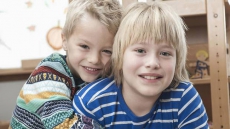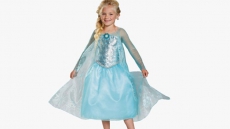The ability to respond to eye cues develops during infancy - at seven or so months, finds research.
"Our study provides developmental evidence for the notion that humans possess specific brain processes that allow them to automatically respond to eye cues," said study co-author Tobias Grossmann from University of Virginia.
The eye white, or how much of it is shown and at what angle, plays a role in the social and cooperative interactions among humans.
For example, while wide-open eyes exposing a lot of white indicate fear or surprise, a thinner slit of exposed eye such as when smiling expresses happiness or joy.
For the study, the researchers used electroencephalography (EEG) to measure the brain activity of seven-month-old infants while showing images of eyes wide open, narrowly opened, and with direct or averted gazes.
They found that the infants’ brains responded differently depending on the expression suggested by the eyes they viewed.
They viewed the eye images for only 50 milliseconds - which is much less time than needed for an infant of this age to consciously perceive this kind of visual information.
“Like adults, infants are sensitive to eye expressions of fear and direction of focus, and that these responses operate without conscious awareness,” Grossmann pointed out.
“The existence of such brain mechanisms in infants likely provides a vital foundation for the development of social interactive skills in humans,” Grossmann added.
The study appeared online in the journal Proceedings of the National Academy of Sciences.





